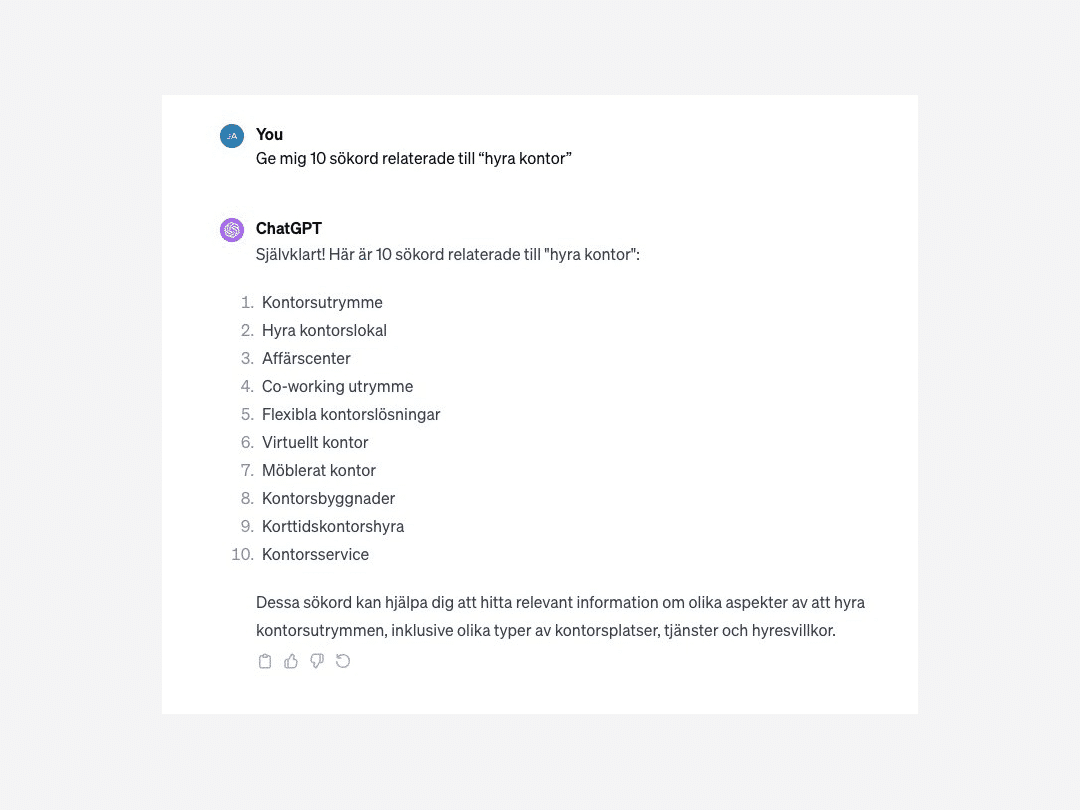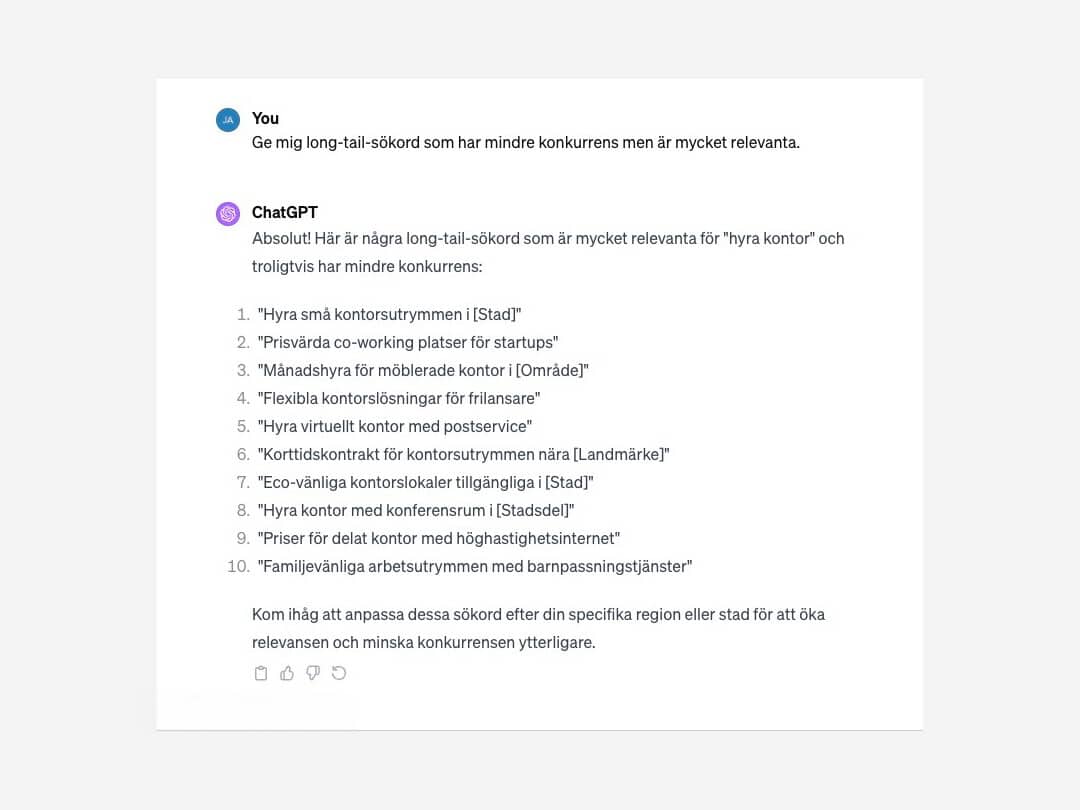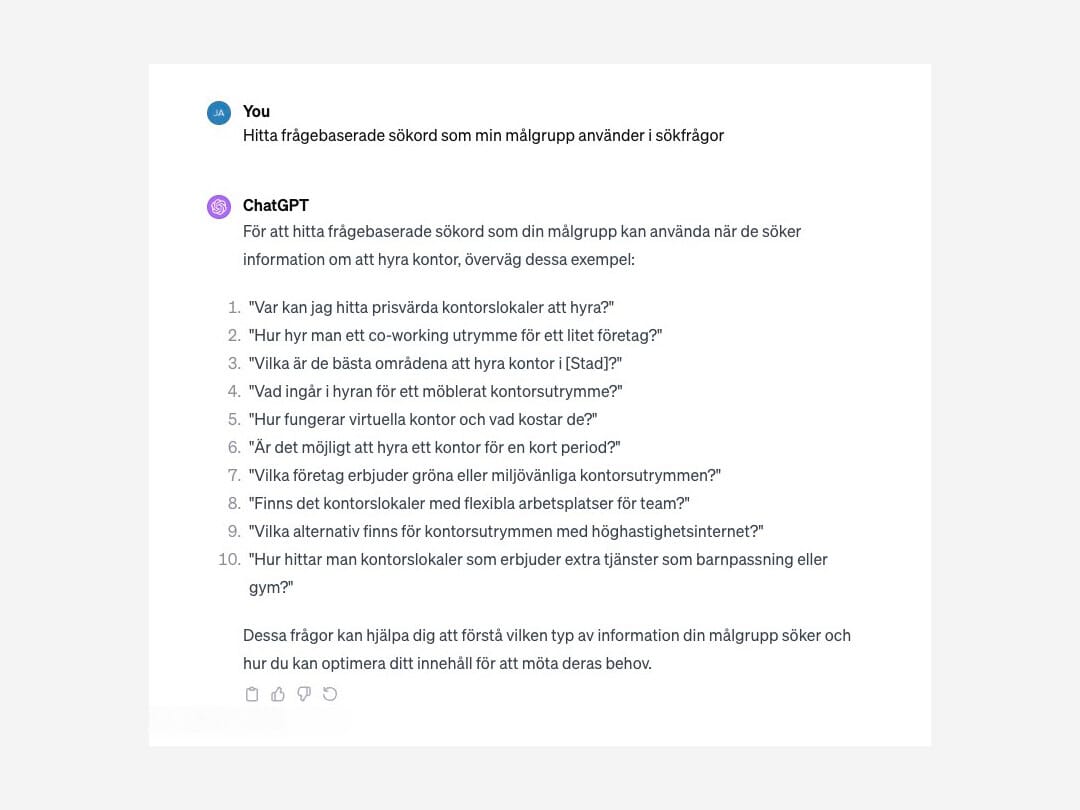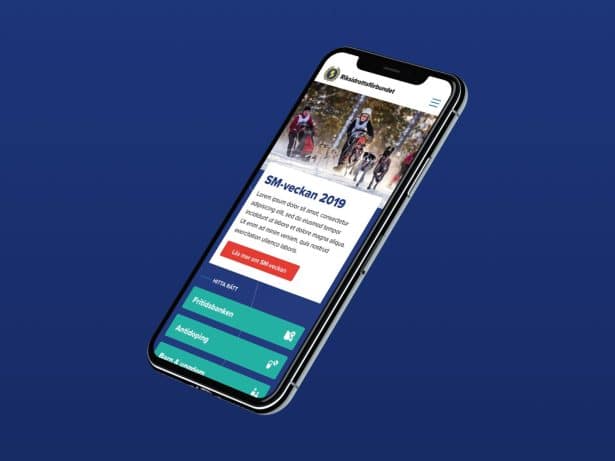How to Use AI in SEO Work
Prompts are the instructions or questions you give to ChatGPT. It's important to formulate these prompts carefully to get as relevant and useful content as possible. Below are a number of steps that illustrate how to facilitate the work effectively.
1. Prompt to Identify Primary Keywords
"Provide me with 10 keywords related to "office rental".

2. Long-tail-keyword
"Provide me with long-tail keywords that have less competition but are highly relevant."

3. Question-based keywords
"Find question-based keywords that my target audience uses in search queries."

4. Title Optimization Prompt
"Suggest engaging titles that include my primary keywords."
5. Meta Description Prompt
"Create compelling meta descriptions containing relevant keywords for [specify topic]."
6. Semantic Keyword Grouping Prompt
"Group the following keywords based on their semantic relevance: ….”
7. Content Rewriting to Avoid Duplication Prompt
"Rewrite the following paragraph in X different ways to avoid repetition while retaining its meaning: …”
8. Fact and Statistic Generation for Content
"Generate a list of the top 10 facts, statistics, and trends related to [specify topic], including their sources."
9. Generating Popular and Relevant Websites for Off-Page SEO Outreach
"Recommend X popular blogs about [specify topic] along with their URLs."

ALT tags, meta descriptions and content briefs
ChatGPT can also generate detailed and optimized ALT tags, meta descriptions, content briefs and even FAQ sections.
ALT-tags
ALT tags are an essential part of image SEO. They help search engines understand the content of images and play a crucial role in web accessibility. ChatGPT generates descriptive and relevant ALT tags for images, improving not only search engine optimization but also making your website more accessible to users with visual impairments.
Meta descriptions
A well-crafted meta description can significantly increase click-through rates (CTR) from search results. ChatGPT creates engaging and relevant meta descriptions that effectively summarize page content while including keywords to enhance searchability.
Content briefs
Creating content that is both user-friendly and optimized for search engines is a challenge. With AI, you can streamline the process by obtaining detailed content briefs. These briefs can provide your content team with a clear structure and guidelines, including topic suggestions, keywords to focus on, suggested tone of voice, and other essential SEO elements.
FAQ sections
FAQ sections are useful for both users and SEO. They provide opportunities to include long-tail keywords and question-based search terms. ChatGPT can help formulate relevant questions and answers that are not only informative but also optimized for search engines.


